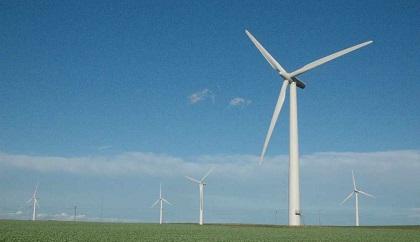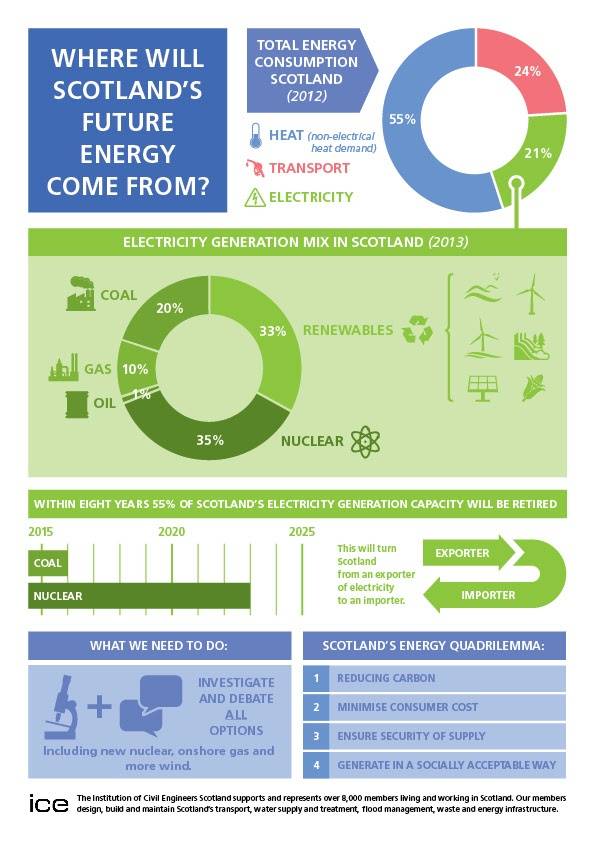
An institution says there is a 'mixed understanding of technology and risk' and calls for the debate around nuclear and onshore gas to be based on evidence, not emotion.
The Institution of Civil Engineers Scotland, which has 8,000 members and is part of a global organisation providing expertise on infrastructure, will call for an expert-led debate on Scotland’s energy policy as part of a major new report.
The Scottish Infrastructure Scorecard, which is released once every Parliamentary term, analyses the Scottish Government’s energy policy as one of five major areas of infrastructure and is compiled using evidence from expert members and stakeholders.
The energy section of the report, to be released in early November, will highlight Scotland’s energy ‘quadrilemma’; the need to simultaneously balance reducing carbon, minimising consumer cost, ensuring security of supply and taking into the account the social acceptability of different types of energy source.
Professor Gary Pender, Chair of the Institution of Civil Engineers Scotland Committee, said:
“Scotland will transition from being a net exporter to being a net importer of electricity if the closures of Longannet, Hunterston and Torness are not replaced by new development. We will be calling for a national debate on how we, as a country, deal with this to ensure that we have a resilient supply with sufficient capacity for the long term.
“Energy policy is hugely politically controversial, with wind power, nuclear power and onshore gas extraction provoking particularly emotional and politically motivated responses. We need to move beyond this at times irrational and ill-informed discourse about all these forms of energy generation, and conduct a thorough, expert-informed assessment of the right approach for Scotland.
“Energy is the part of Scotland’s infrastructure network which concerns us most, and we encourage the Scottish Government, working with the UK Government, to provide a clearly articulated vision for the future. Decisions must be made on evidence and resilience, not on emotion and politics.”



 10°C
10°C
 10°C
10°C
 9°C
9°C